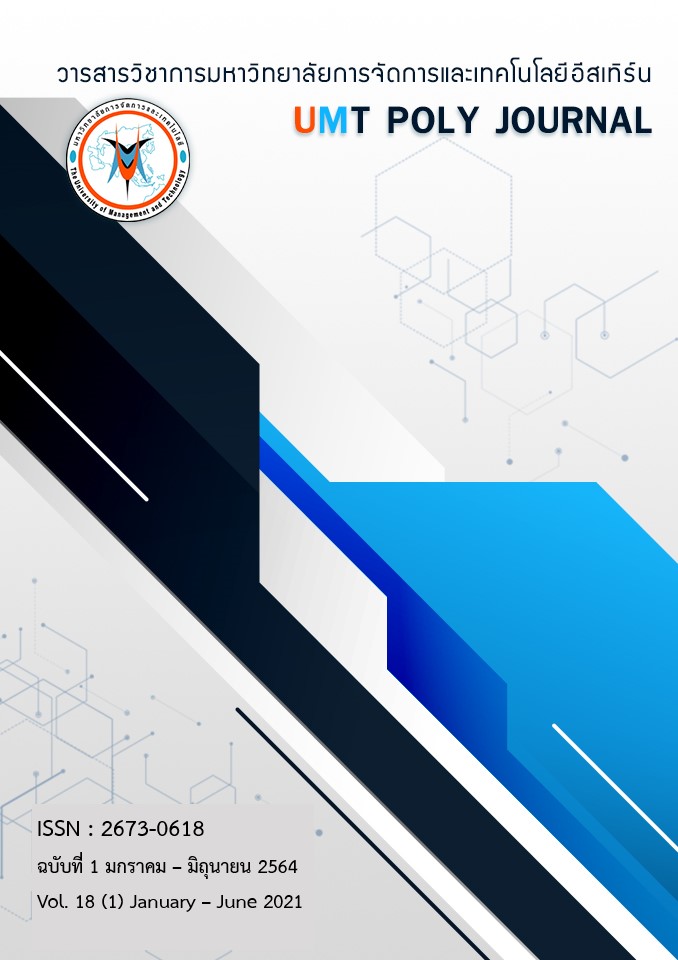Research on the Influence of Employee-Organization Relationship and Psychological Contract on Employee Loyalty
คำสำคัญ:
Employee-organizational relationship, Psychological contract, Employee loyaltyบทคัดย่อ
In this article, taking China's small and medium-sized enterprises as the research object, discuss the relationship among employee-organizational relationship, psychological contract and employee loyalty, and analyze the relationship between the three in depth.
This research is conducted in accordance with the logical sequence of proposing, analyzing and solving problems. First of all, it summarizes and integrates relevant research data at home and abroad, and builds a theoretical model among the three to carry out research under the premise of research data. Second, divide the dimensions of the selected variables, and complete the questionnaire based on the maturity scale. A total of 300 questionnaires were collected. On the basis of the collected data, combined with statistical software SPSS21.0 processing and specific analysis; the hypothetical theory is verified and analyzed. On the premise of analyzing the results, and draw the corresponding research conclusions. First, for employee loyalty, the employee-organization relationship is significantly positively correlated. Second, between employee loyalty and employee-organizational relationship, the psychological contract has played a part in the connection.
Downloads
เอกสารอ้างอิง
Cao Weilin, Zhu Renfa, Guo Jiangping (2007). The concept, subject and construction mechanism of psychological contract. Economic and social system comparisons ,2007(2):132-137
Chen Jiazou (2001). A Study on the Psychological Contract of Chinese Employees .Beijing: Institute of Psychology, Chinese Academy of Sciences .
Du Hui, Chen Lin, Li Lihua (2016). A study on the influencing factors of post-90s employee loyalty —— based on Beijing, Shanghai, Tianjin and Fujian. Research World ,2016,(12),36-40.
Gao ZhongHua, Zhao Chen (2016). Does organizational politics in the workplace endanger employee performance? vision based on individual-organization theory. Psychology report ,2016,46(8),1124-1143.
Gong Jihong, Zhong Shengbao (2014). An empirical analysis of the relationship between system efficiency, job satisfaction and professional loyalty —— based on the investigation of agricultural technicians at the grass-roots level in 10 counties (cities and districts) of Hubei Province. China Rural Watch ,2014(4),71-83.
Guest D.On Meaning(1998),Metaphor and Psychological Contract: A Response to Rousseau.ournal of Organizational Behavior,1998(9):673-677
Guo Peng (2013). Empirical study on the influencing factors of knowledge employee loyalty in Inner Mongolia. Inner Mongolia: Inner Mongolia University of Finance and Economics.
Huei-Fang Chen, Yung-Ho Chiu (20090. The influence of psychological contracts on adjustment and organizational commitment among expatriates. International Journal of Manpower.2009, 30(8),797-814.
Li Zhi, Li Xingmin (2005). An empirical study on the characteristics of high loyalty employees in enterprises. STM ,25(6):75-77
Ling Wencan, Zhang Zhican, Fang Liluo (2001). Research on the commitment of Chinese workers. China Social Sciences ,2001(2):90-102
MARCHJG,SIMONHA(1985).Organizations.New York:John Wiley and Sons IN c.
Meyler,Allen(1997).Commiment in the workplace: Theroy, research, and application, Calfornia:Sage publication,1997
Wu Jihong (2006). Research on employee-organization relationship from two-way perspective based on social exchange theory. Sichuan University
Zhang Juan, Lu Yumei, Peng Hefang (2015). Based on psychological contract, the new generation employee loyalty analysis —— take Changzhou manufacture as an example. Commercial economy ,2015(2),81-82,103.
ดาวน์โหลด
เผยแพร่แล้ว
ฉบับ
ประเภทบทความ
สัญญาอนุญาต
ประกาศลิขสิทธิ์
เนื้อหาและข้อมูลในบทความที่ลงตีพิมพ์ในวารสารวิชาการมหาวิทยาลัยการจัดการและเทคโนโลยีอีสเทิร์น ถือเป็นข้อคิดเห็นและความรับผิดชอบของผู้เขียนบทความโดยตรง ซึ่งกองบรรณาธิการวารสารไม่จำเป็นต้องเห็นด้วยหรือร่วมรับผิดชอบใด ๆ
บทความ ข้อมูล เนื้อหาหรือรูปภาพ ฯลฯ ที่ได้รับการตีพิมพ์ในวารสารวิชาการมหาวิทยาลัยการจัดการและเทคโนโลยีอีสเทิร์น ถือเป็นลิขสิทธิ์ของวารสารวิชาการมหาวิทยาลัยการจัดการและเทคโนโลยีอีสเทิร์น หากบุคคลหรือหน่วยงานใดต้องการนำข้อมูลทั้งหมดหรือบางส่วนไปเผยแพร่ต่อหรือเพื่อกระทำการใด ๆ จะต้องได้รับอนุญาตเป็นลายลักษณ์อักษรจากวารสารวิชาการมหาวิทยาลัยการจัดการและเทคโนโลยีอีสเทิร์นก่อนเท่านั้น




